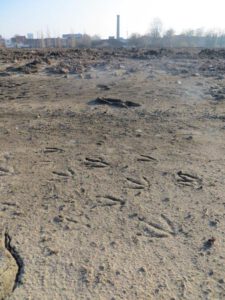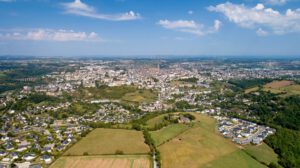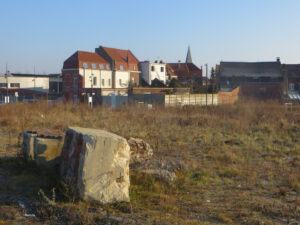Project coördinator
BRGM, France
Duration
12 months
Costs
€ 202.467,-
DELIVERABLES SOILval
SOILval Summary reports and synthetisis
- Presentation Kick off meeting SOILval
- SOILval end of project – summary report (EN)
- Synthetisis – SOILval project results, (EN)
- Synthèse – Résultats du projet SOILval (FR)
- SOILval Final meeting SOILveR Pilot Call (presentation EN)
- SOILval short video presentation (EN)
SOILval Work Package reports
- Work Package 2 Report – Etat de l’art juridique et technique
- Work Package 3 Report – Consultations avec les parties prenantes
- Work Package 3 Report – Annexes
- Work Package 4 Report – Analyses et recommendations
SOILval Policy brief and R&D Note
- Note R&D Besoins en recherche et développement pour une meilleure intégration de la qualité des sols dans la planification et l’aménagement du territoire, 18 pages.
- Policy Brief Wallonie – L’intégration des qualités du sol dans le droit de l’aménagement du territoire, 6 pages.
- Policy Brief France – Etat des lieux et perspectives d’évolution de la qualité des sols en droit français dans un contexte d’aménagement, 6 pages.
SOILval Technical Fact Sheets in FRENCH
- Face aux défis de lutte contre l’artificialisation et étalement urbain en France et en Wallonie : 7 fiches pour vous accompagner à considérer les fonctions écologiques des sols en planification et aménagement du territoire.
- SOL et sol… un accord parfait?
- Le SDC et le SCoT… au service de la qualité écologique du sol.
- L’évaluation environnementale… ou comment améliorer la qualité écologique des sols.
- La désimperméabilisation des sols, pour un retour de la nature en milieu urbain.
- Le génie pédologique pour recréer des sols fertiles…
- Connaitre la qualité des sols en France et en Wallonie et les outils d’aide à la décision en appui à la refonctionnalisation des sols.
SUMMARY
Recognising SOil values in land use planning systems (SOILval)
The overall aim of the SOILval project was to assess whether and how soil biodiversity, functions and related Ecosystem Services (ES) (‘soil values’) are or could be better recognised in land use planning systems in France and Wallonia in the perspective of ‘no net land take’ objective by 2050.
Far from being only a simple physical substrate for urban development, agriculture and infrastructures, soils and their biodiversity, functions and associated ecosystem services (here after ‘soil values’) provide for multiple key benefits to society, from carbon storage, timber and crops production and water purification to recreational activities. Soil values are currently hardly taken into account in land use planning law and practices. However, the recent ‘No Net Land Take by 2050’ objective set up by the EU Commission and by an increasing number of Member States may encourage the development of integrated land and soil protection and sustainable management solutions in land use planning policies, such as integrated green infrastructure planning, protected areas, nature-based solutions, compensatory mitigation hierarchy, de-sealing and brownfield regeneration and ES assessments.
In this context, the SOILval project aimed specifically at:
- Improving knowledge of technical solutions and land management tools integrating soil values in land use planning in France and Wallonia;
- Assessing the degree and legal challenges of integration of soil values into land use planning instruments and decision-making processes in in domestic law;
- Improving knowledge of the stakeholders’ perception of their needs, difficulties, feedback regarding the feasibility of soil refunctionalisation solutions, decision support tools, databases on soil quality data and legal instruments studied in 1) and 2);
- Drawing recommendations from steps 1) to 3) to enhance integration of soil values into land use planning systems in France and Wallonia in the context of “No net land take by 2050”.
SOILval project team carried out an in-depth technical literature review and legal analysis to draw the current state of the art on soil refunctionalisation solutions, decision support tools, databases on soil quality data and instruments in land use planning and their level of operability/ legal feasibility (see deliverable D2.1). Based on their strong network of land management actors, project partners gathered relevant stakeholders to undertake targeted consultations via a web survey and a web café (see deliverable D3.1). Recommendations were drawn to promote the consideration of ecological soil functions in particular in land planning and management in France and Wallonia( see deliverable D4.1).
The SOILval deliverables were transformed in easy reading format for better dissemination to the of French and Walloon public and private stakeholders involved in land use decision-making processes .
Two policy brief were written with recommendations on how to better integrate soil quality in land planning and development (one for France and one for Wallonia)
The SOILval project also proposes a note on “R&D needs” for better integration soil quality. And the results from the technical review art were summarised in a series of fact sheets to help local authorities ( and other stakeholders) towards a better integration of ecological soil functions in land planning and development tools, in implementing soil refunctionalisation solutions in redevelopment projects, in decision supporting tools for refunctionalisation projects, and in the organisation of soil quality knowledge across France and Wallonia.
The project team gathered French and Walloon legal and scientific soil experts. BRGM (coordinator) brought expertise in soil refunctionalisation solutions , knowledge of quality data organization and science-stakeholder interface (Elsa Limasset, Corinne Merly, Pauline Bâlon), Maylis Desrousseaux (CNAM) is an associate professor in environmental law, interested in soil quality. Dr. Florence Baptist, brought her expertise in ecological functionality assessment and ES evaluation. UCLOUVAIN brought expertise in Walloon spatial planning and territorial development strategies, (Pr. Yves Hanin, Fiorella Quadu, CREAT-UCL), and experience in legal analysis of interactions between urban planning and biodiversity (Pr. Ch-H Born, Dr. Aurélien Hucq) SERES-UCL). SOILval expertise was complementary, providing multi-disciplinary skills.
Partners
BRGM (France)
UCLOUVAIN (Belgium- Wallonia)
CNAM (France)
BIOTOPE (France)

@BRGM

@Altitude Drone/Shutterstock.com

@BRGM
